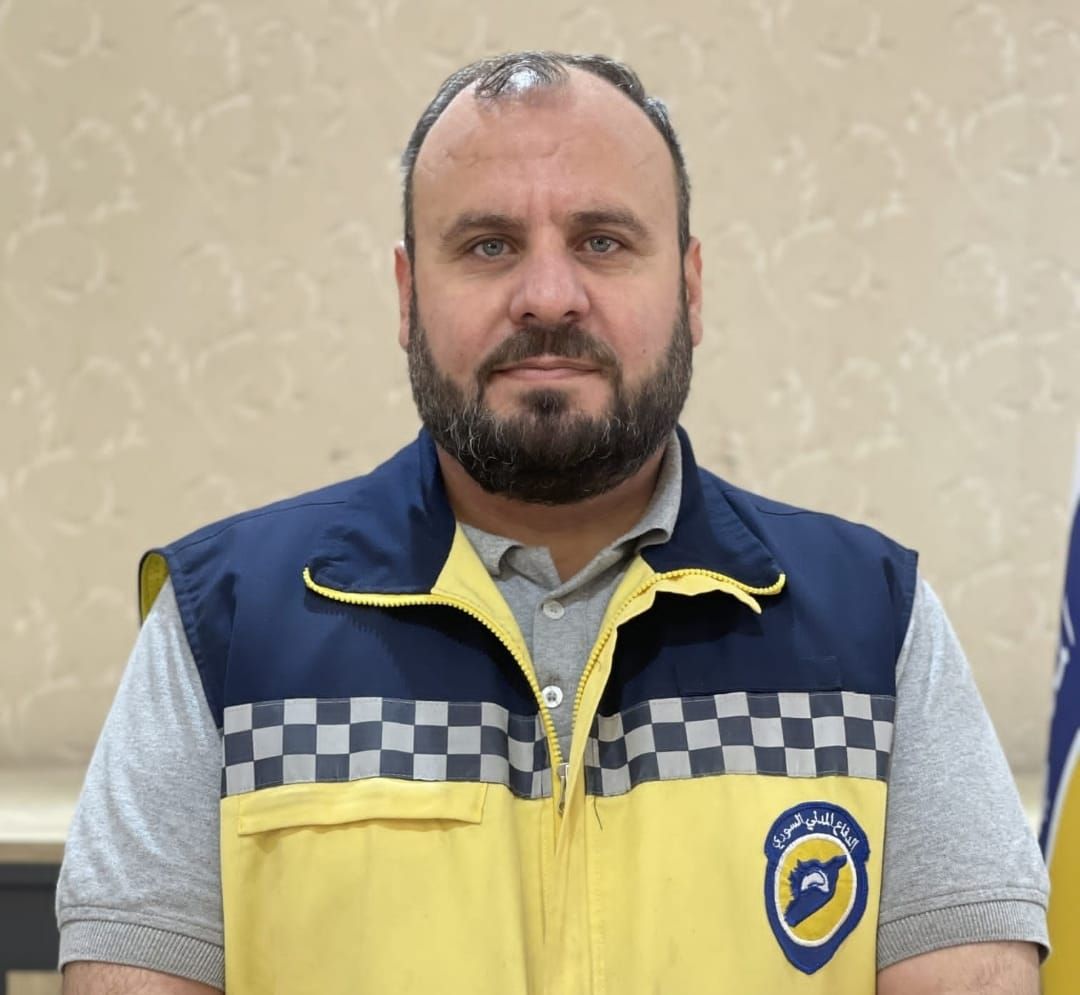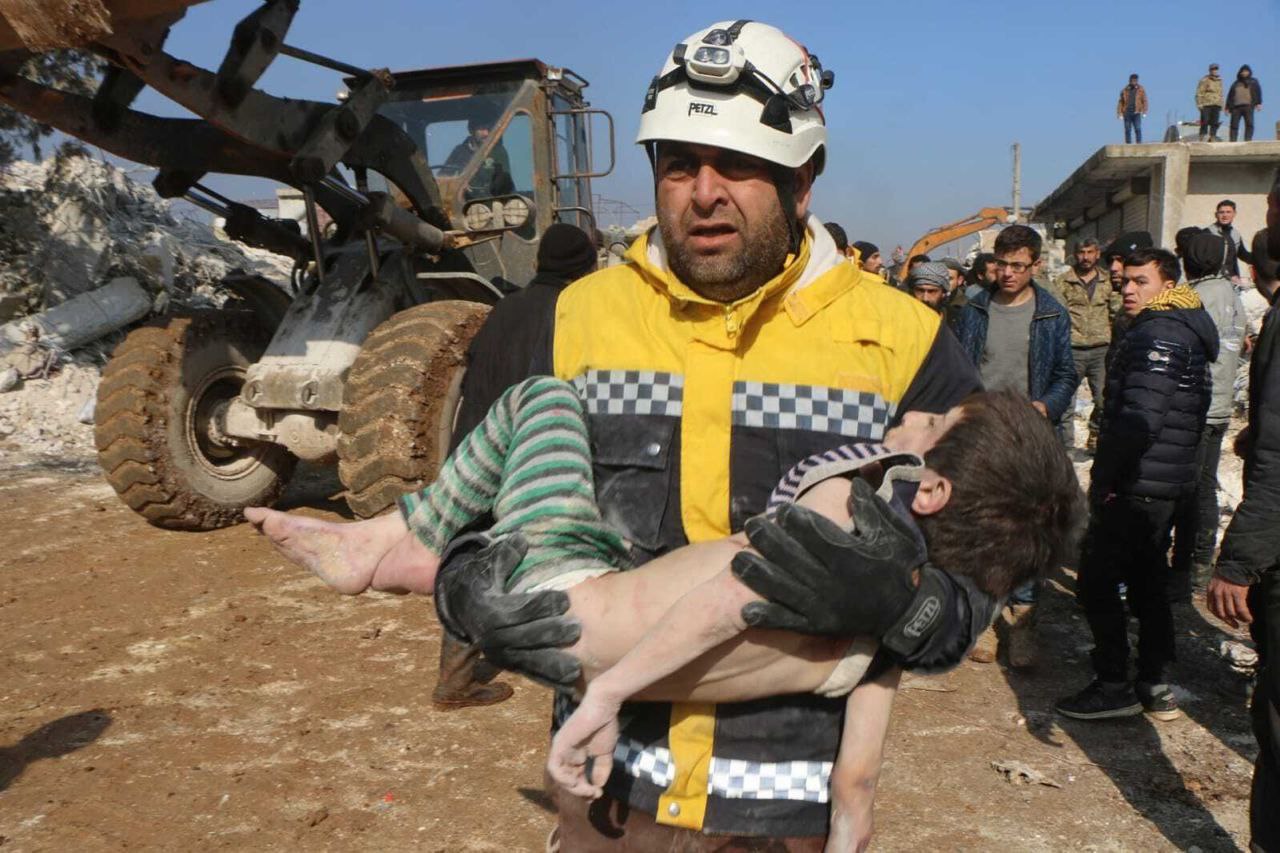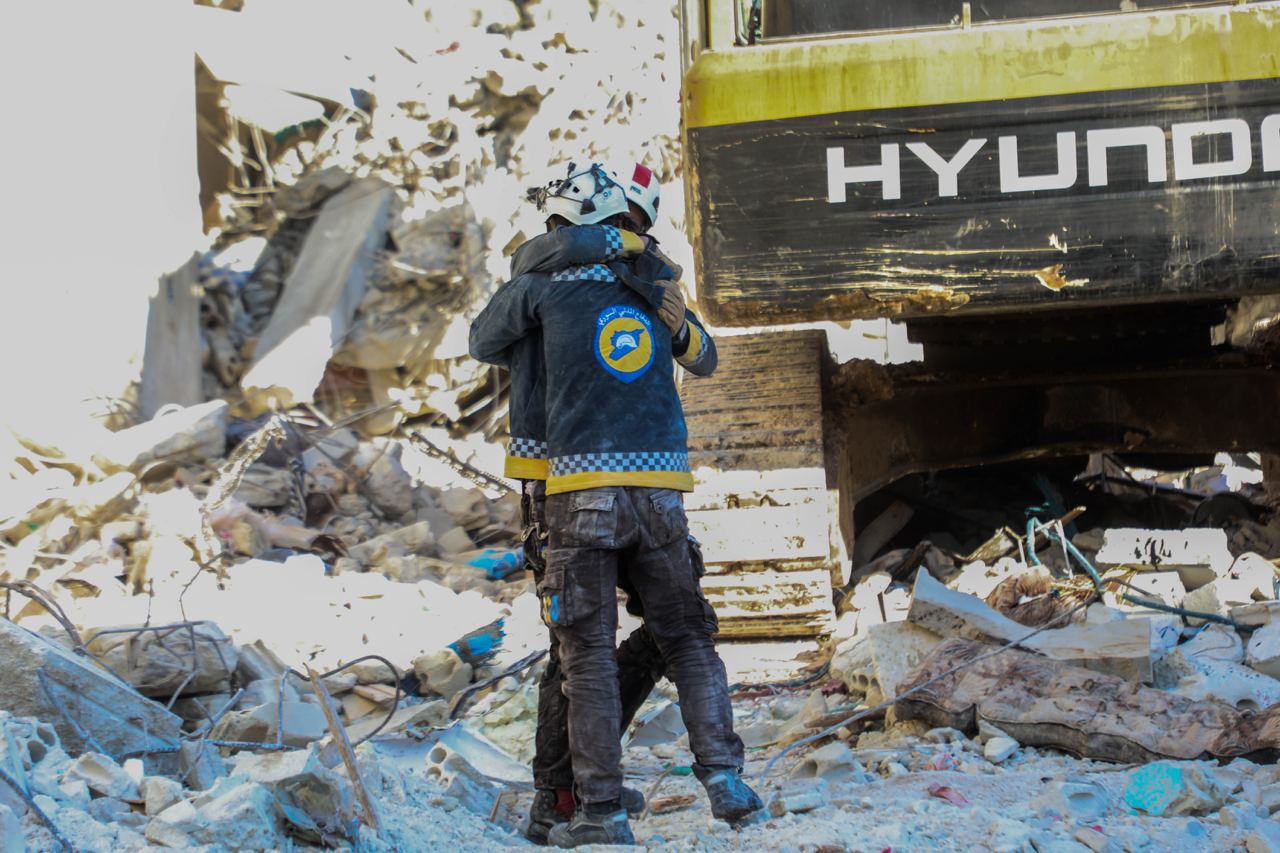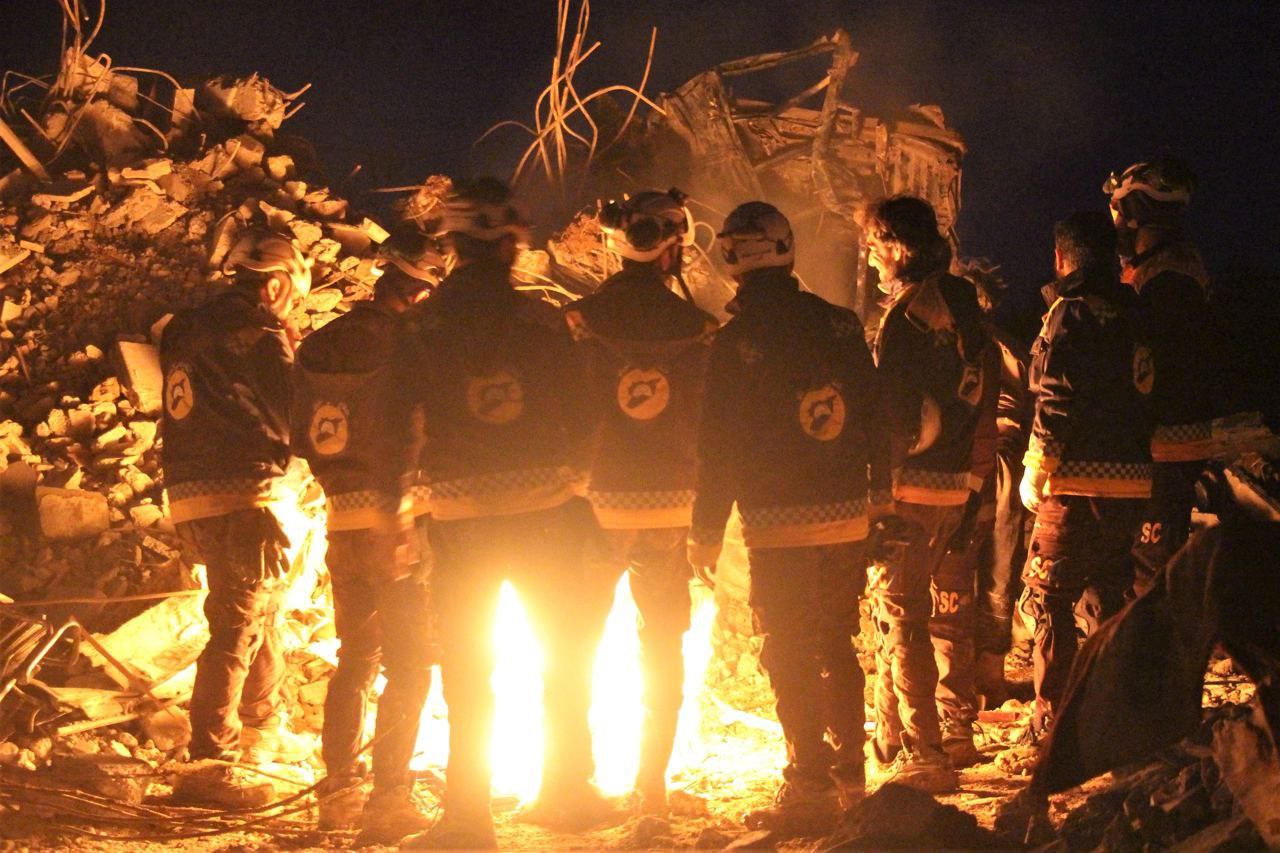
Interview with Monir Mustafa, deputy head of the White Helmets, regarding the situation in Northern Syria which was the second most affected after Turkey by the recent earthquake.
L24: Civil Defense has dealt with the results of large-scale Russian and Assad bombing campaigns in the past how does this disaster compare?
Monir Mustafe: The comparison may be somewhat unfair. Now we’re facing a natural disaster but previously we were working because of a war being waged against the Syrians, so it is not possible to compare the two cases, so let us compare the cases from an operational point of view. The most important thing is that during the bombing campaigns, there is always a systematic and direct targeting of vital facilities, hospitals, schools, and markets, but in the current case it is a disaster that prevails in the region as a whole.
Secondly, the issue of the double bombing, which is the most dangerous thing during the rescue operations of those trapped under the rubble as a result of the bombing. So, while the volunteers rush to respond to the first bombing, they are surprised by a second air attack, whose aim is to kill these volunteers and turn them from rescuers into victims.
Certainly, the earthquake catastrophe is greater in terms of the large spread of buildings, most civilians were sleeping, and entire buildings collapsed and leveled to the ground, so the case differs in this regard, and also the number of areas that need assistance was much greater (and widespread) than in most bombing cases.

L24: In your years of experience dealing with search and rescue, how have the last 4 days been when compared to the normal work you perform?
Monir Mustafe: We have been working since 2012 (11 years) now as rescue teams, and we have accumulated great experience, which we gained during the response to the attacks on the Syrian regions by the Syrian regime and Russia. This current work reminds us of Aleppo, Ghouta, Darayya, Homs, and all the regions that were afflicted, but now the disaster is much greater in terms of numbers and distribution.
L24: What has been the greatest difficulty you’ve faced during these rescue operations?
Monir Mustafe: The greatest difficulty for us is that we hear people calling for help and we cannot reach them. This psychological factor has a great impact on our lives, but we try to recuperate after we rescue a boy or a girl who was under the rubble. The operational difficulties are related to the huge distribution of the number of points that are being worked on, also the absence of heavy machinery capable of responding to a natural disaster such as earthquakes.
Such natural disasters need specialized machinery and technical equipment that detect those trapped under the rubble at different depths via x-rays, as well as hydraulic cranes with long arms, machinery capable of carrying tons of weight, and machinery that can move over the rubble from one area to another after we make sure that there is no existence of living people under the rubble, meaning that there are specialized machines and this matter is well known, but we continue working and make due. Despite our possession of some very good equipment capable of dealing with those trapped beneath buildings, it is inadequate when dealing with a disaster of this magnitude.
Also, we have another factor which is the lack of funding and lack of aid. We are currently working on using our fuel reserves. Frankly, we have been working using these emergency reserves for the last two months. We do not know when will it end, but certainly, the lives of civilians make us move forward and we will never stop until we save everyone we can.

L24: How have the people in the various areas responded? We have seen reports that in many areas, civilians and military personnel have joined in the rescue efforts?
All the Syrians in the area rushed to rescue. Truth be told, the people’s response was the biggest factor that helped us, as they responded in all regions regardless of whoever is stuck under the rubble, whether they are civilians or military. In the end, regardless of these labels, those trapped are all people who were sleeping in their homes, and in humanitarian work, there is no politicization at all, even if they were soldiers of the regime we will save them, as we’ve done in the past when we’ve rescued regime soldiers, that’s how humanitarian work view this issue.
In fact, it is a shameful thing for civilians to be viewed in this way. We do not look at who is in front of us or who we rescue and pull out from under the rubble. The most important thing for us is to save the lives of the people who are trapped under the rubble and the civilians who are screaming and their voices are fading gradually.
Today, the region is a war zone, that’s the situation, and it’s normal to find military members. In our response to this disaster, we adopted the situation of social solidarity with the people in the area. They provide us with assistance, and our teams lead the operations on the ground and are distributed at all points. There are civilians helping us, and we try to organize and train them slightly so that they can deal with the rubble. Our teams are trained to deal with the rubble and lift it with hydraulic compressors and airbags, we try not to put civilians in danger because when they are in danger, we will also be in danger, and those trapped will be at risk too.
L24: Have you received any aid since the earthquakes occurred, either from local sources or internationally?
Monir Mustafe: We have not received any assistance from anyone until now. The assistance, as I said, was from local civil bodies and parties. As for other parties, there is absolutely no assistance, and we do not care who assists us because we look at the person that we save and this is the most important thing for us, and I go back and confirm that we did not receive any assistance and we held meetings and conferences with partners, and we were given promises of quick response and assistance, but nothing arrived yet, and I think (and hope) that aid will arrive soon.
L24: In addition to search and rescue operations, what other services are the Civil Defense providing?
Monir Mustafe: Mainly we have first aid operations and patient transportation, and we also currently have evacuation operations.

L24: What message would you want to convey to the Syrian people regarding this disaster and your work? What is the best way people can help?
We gave several instructions to the residents regarding the need to organize their matters and not to cause obstruction to the work of ambulances. Yesterday we raised awareness about this matter. We asked the civilians to organize teams and not to be unorganized in their work with us, to form a protective wall for us during our work, making sure that no one approaches so that there is no danger to them, us, and those trapped under the rubble, and we asked the teams and people who want to help to abide by the instructions of the Civil Defence team leaders on the ground.
L24: What message would you want to send to the international community?
Monir Mustafe: Every second and every minute that passes, we lose a person. There is a child that loses their parent, and there are families that lose their children. Every moment of delay in bringing in machinery and assistance capable of removing the rubble and saving the lives of these people, we will lose new lives. Our hope began to dwindle, and the voices and groans of those trapped under the rubble are fading away. This is frustrating for us and we don’t know how to continue.









